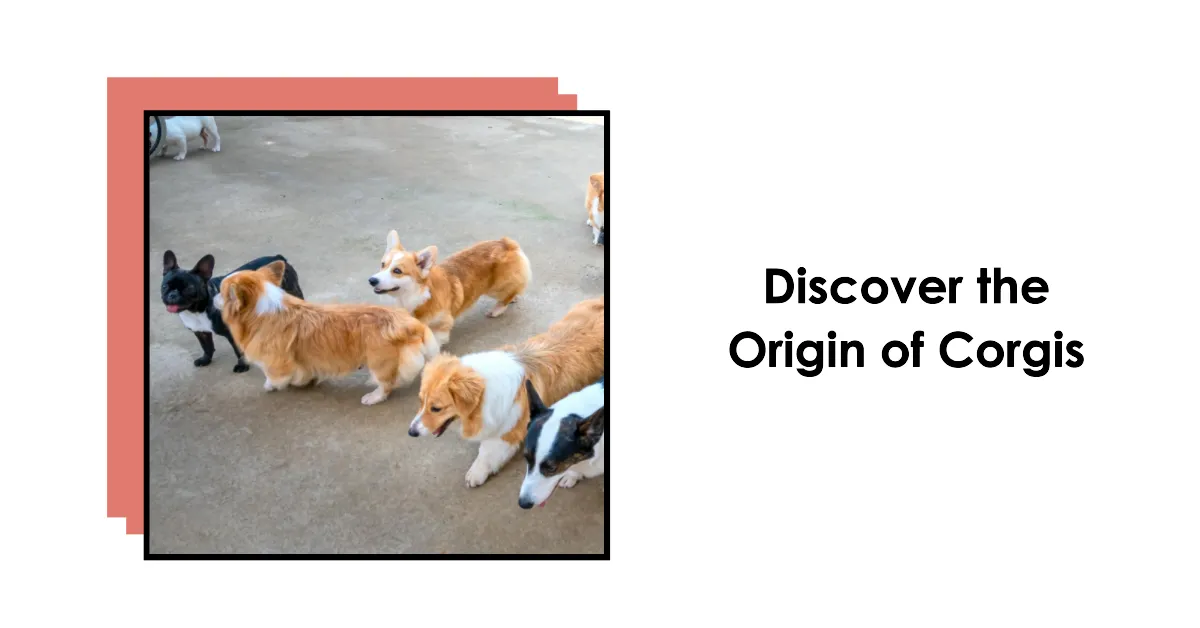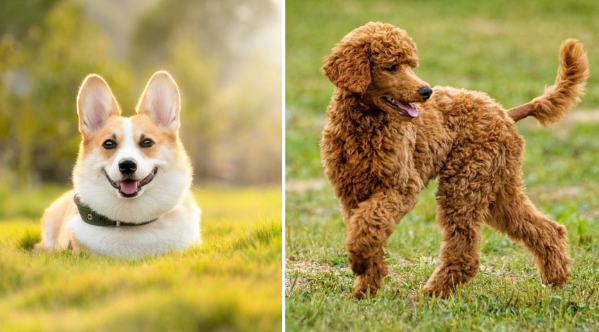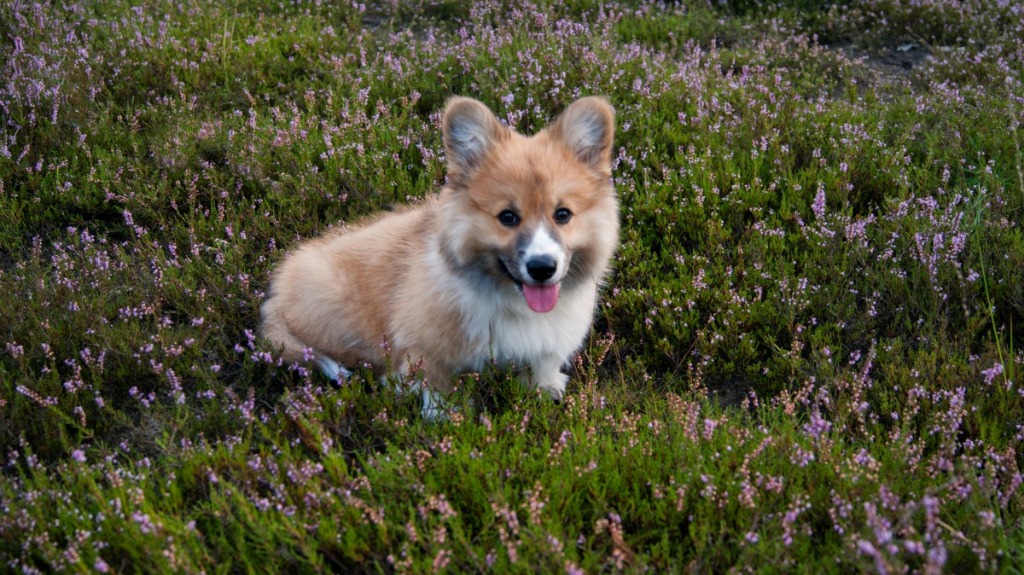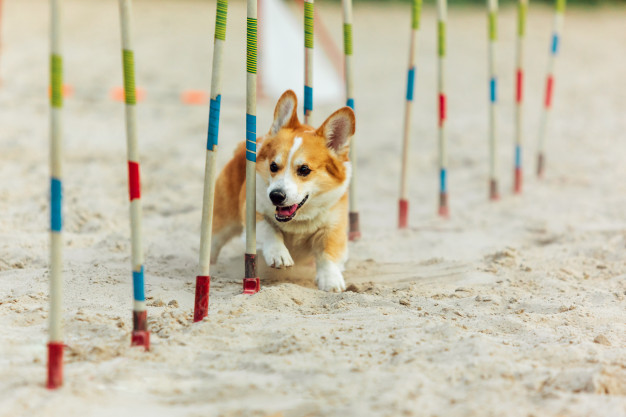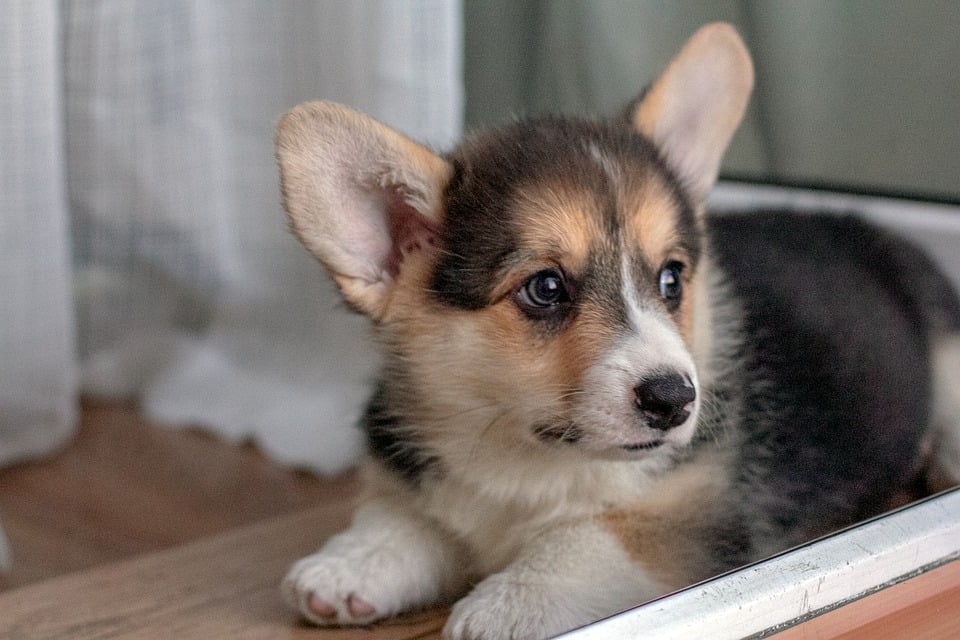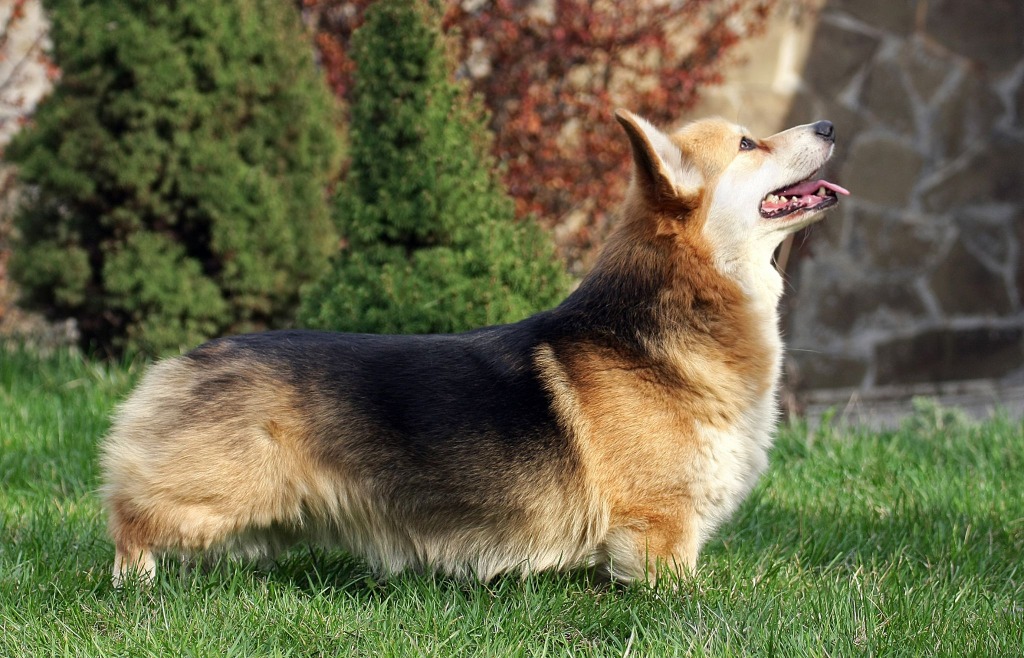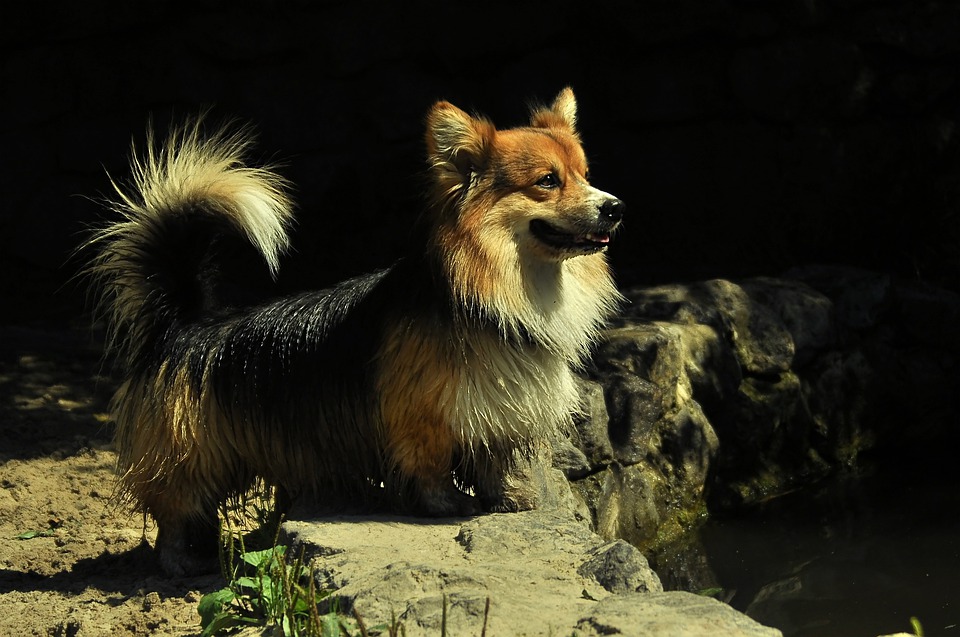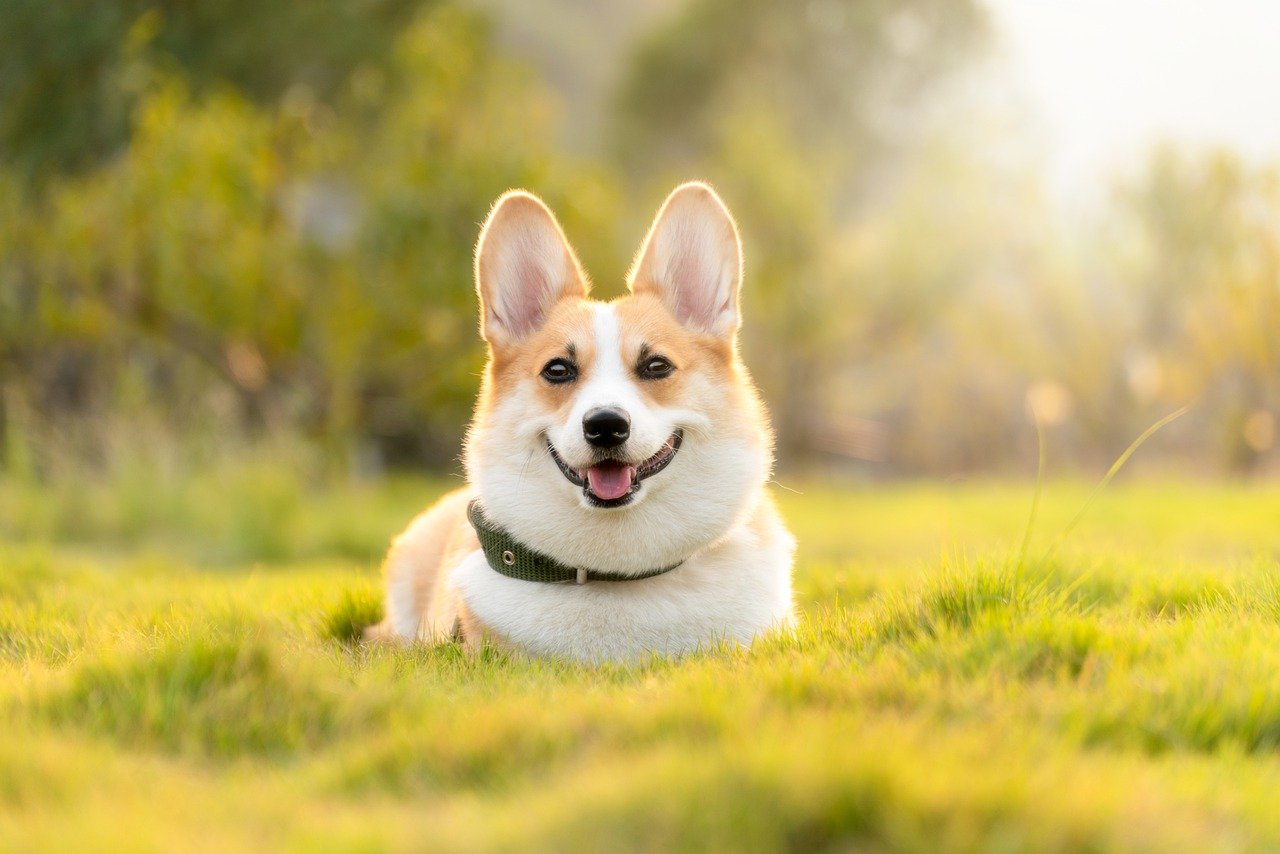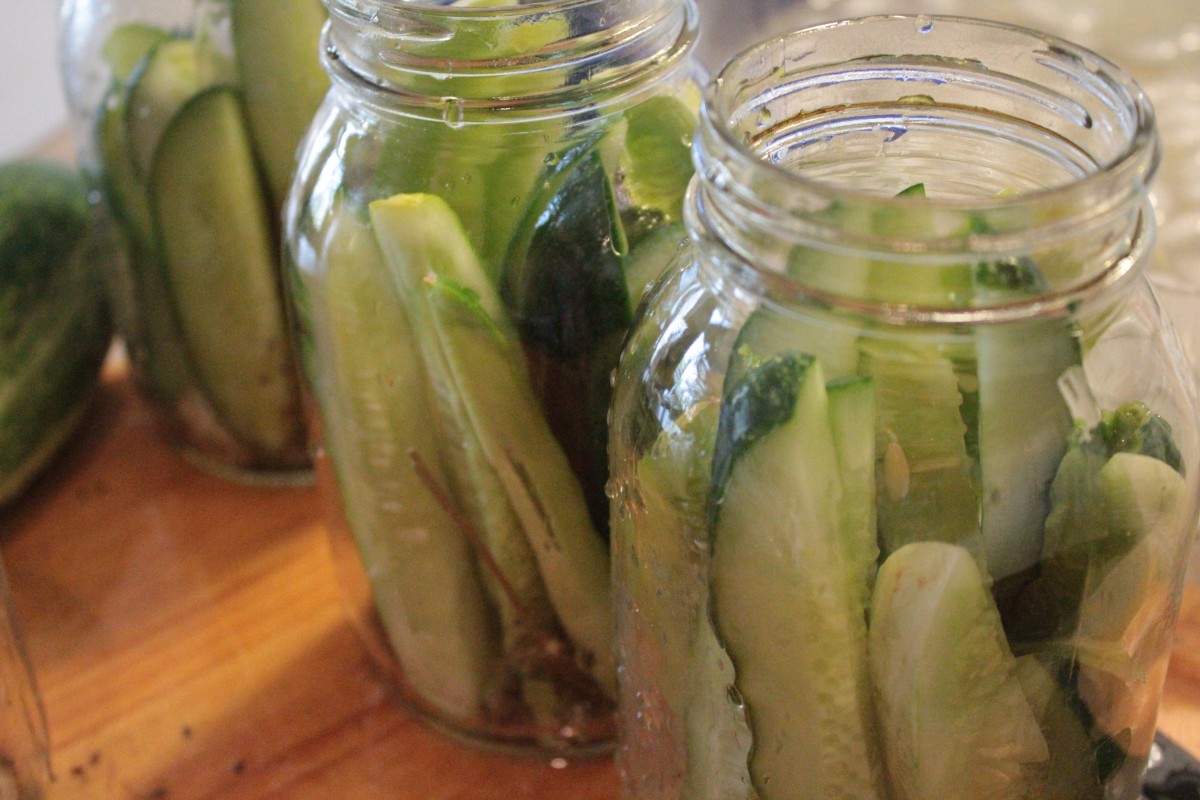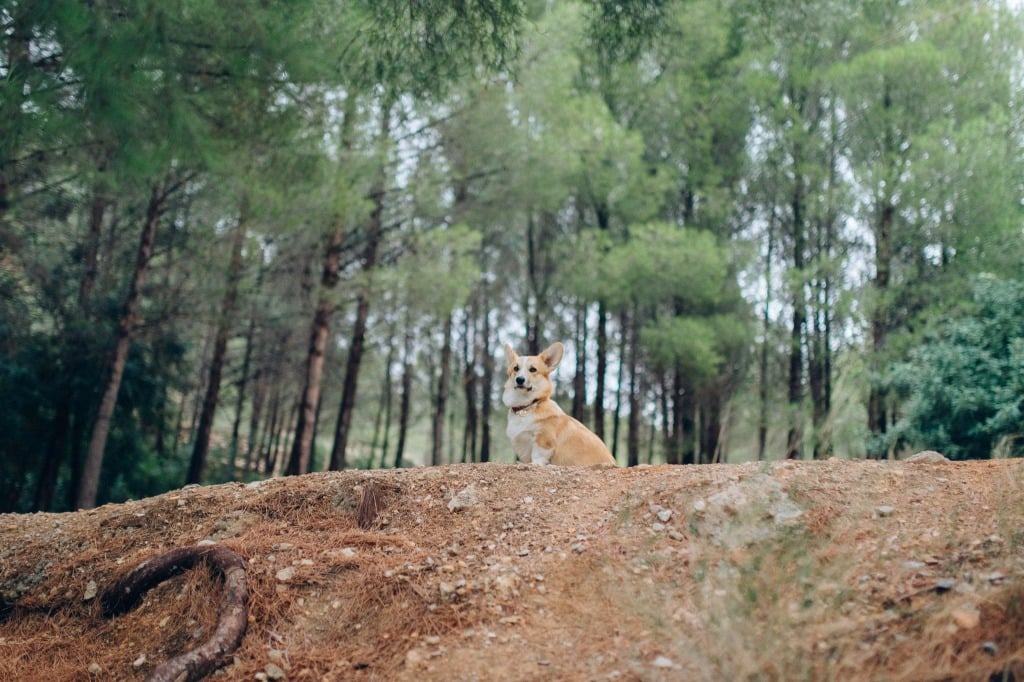Addressing Separation Anxiety in Your Corgi
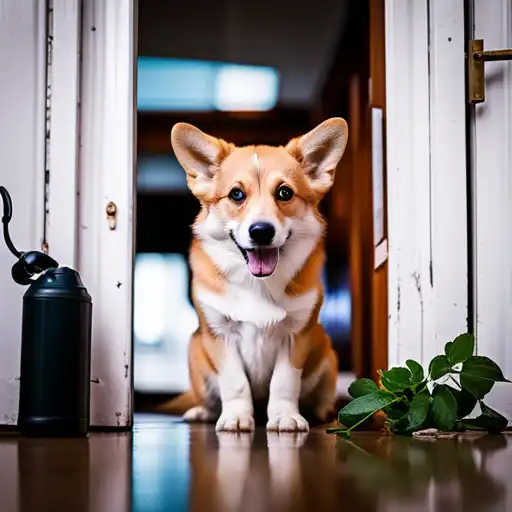
Are you tired of coming home to find your corgi in a state of distress? It's time to tackle separation anxiety head-on and give your furry friend the peace of mind they deserve.
Just like a fish out of water, your corgi feels out of place when you're not around. But fear not! With the right strategies and a little bit of patience, you can help alleviate their anxiety and create a safe and secure environment for them.
In this guide, we'll explore effective techniques to address separation anxiety in your corgi, from establishing a consistent routine to providing mental and physical stimulation.
So, let's dive in and give your corgi the confidence they need to conquer their fears!
Understanding Separation Anxiety
To understand separation anxiety in your Corgi, you must recognize its signs and symptoms. It's important to be aware of the triggers that can cause anxiety in your furry friend. Common triggers include being left alone for long periods, changes in routine or environment, or even loud noises.
When your Corgi experiences separation anxiety, they might exhibit behaviors like excessive barking, destructive chewing, or urinating indoors. It's crucial to address these signs promptly to ensure your Corgi's well-being.
There are several coping mechanisms you can try to help your Corgi manage their anxiety. Providing them with a safe and comfortable space, using calming products like pheromone diffusers or anxiety wraps, and gradually desensitizing them to your departures can all be effective strategies.
Identifying Signs of Separation Anxiety
When it comes to your beloved Corgi, it's important to be able to identify the signs of separation anxiety. This way, you can provide the necessary support and help them feel more at ease when you're not around.
Common signs of separation anxiety in Corgis include excessive barking, destructive behavior, potty accidents, and excessive drooling. Keep an eye out for these behavioral changes to determine if your Corgi is experiencing separation anxiety.
Common Separation Anxiety Signs
If your Corgi frequently exhibits behaviors such as excessive barking, destructive chewing, or urinating indoors while you're away, it's likely that they're showing common signs of separation anxiety. It's important to recognize these signs so you can address the issue and help your furry friend feel more secure when you're not around.
Here are three common signs to look out for:
- Pacing and restlessness: If your Corgi can't seem to settle down when you leave, constantly pacing back and forth or whining, it may be a sign of separation anxiety.
- Escape attempts: Your Corgi may try to escape from their crate or the house in an attempt to find you. They may scratch at doors, windows, or even dig at the carpet.
- Excessive drooling: If you come home to find your Corgi's bed or the floor soaked in drool, it could be a sign of anxiety. Excessive drooling is a common physiological response to stress.
Behavioral Changes Indicating Anxiety
Recognizing behavioral changes is crucial in identifying signs of separation anxiety in your Corgi. By understanding anxiety triggers and creating a safe and comforting environment, you can help alleviate your furry friend's stress. Pay close attention to any changes in their behavior when you're about to leave or when they're left alone.
Some common signs of separation anxiety include:
- Excessive barking or howling
- Destructive behavior
- Excessive drooling
- Pacing or restlessness
- Attempts to escape
Your Corgi may also exhibit changes in appetite, such as refusing to eat or eating excessively. Keep an eye out for these behaviors and take note of any patterns or frequency. Identifying these signs will enable you to take the necessary steps to help your Corgi feel more secure and calm when separated from you.
Establishing a Consistent Routine
Start by establishing a consistent daily routine for your Corgi. Dogs thrive on predictability, and having a set schedule can help reduce their anxiety when you're away. Here are three key elements to consider when creating a routine for your furry friend:
- Feeding time: Serve meals at the same time every day. This not only helps regulate their digestive system but also provides them with a sense of security knowing that food will be available at specific times.
- Exercise and play: Incorporate regular exercise sessions into your Corgi's routine. This not only keeps them physically fit but also helps release pent-up energy and reduce anxiety.
- Mental stimulation: Engage your Corgi in activities that challenge their mind, such as puzzle toys or training sessions. Mental stimulation can help keep them occupied and prevent boredom-induced anxiety.
Providing Mental and Physical Stimulation
Now that you've established a consistent routine for your Corgi, it's time to focus on providing them with mental and physical stimulation.
Interactive toys are a great way to keep your Corgi entertained and mentally engaged while you're away. Consider puzzle toys or treat-dispensing toys that will challenge their problem-solving skills.
Additionally, make sure your Corgi gets plenty of exercise through daily walks, playtime, or even obedience training sessions. This won't only tire them out physically, but also help alleviate their separation anxiety.
Interactive Toys for Corgis
To help alleviate separation anxiety in your corgi, consider providing them with interactive toys that offer both mental and physical stimulation. These toys not only keep your furry friend entertained but also help distract them from feeling anxious or lonely while you're away.
Here are some enrichment activities for corgis that can benefit them:
- Puzzle toys: These toys challenge your corgi's problem-solving skills and keep their mind engaged. They often involve treats or hidden compartments that require your dog to figure out how to access the rewards, providing mental stimulation and a sense of accomplishment.
- Interactive balls: These toys are designed to keep your corgi physically active. They can be tossed, rolled, or even bounced, encouraging your dog to chase and fetch. This not only helps burn off excess energy but also promotes bonding and exercise.
- Treat-dispensing toys: These toys hold treats inside and require your corgi to work to get them out. By keeping your dog occupied and focused on the task, these toys provide mental stimulation and help alleviate boredom.
Exercise Routines for Corgis
Incorporate exercise routines that provide mental and physical stimulation for your corgi to help address separation anxiety.
Corgis are an active breed that require regular exercise to keep them happy and healthy. Engaging your corgi in outdoor activities not only gives them the opportunity to burn off excess energy, but also provides mental stimulation through exploration and sensory experiences.
Take your corgi on daily walks or runs, play fetch in a fenced yard, or even try agility training to keep them physically challenged.
Additionally, socialization opportunities are important for corgis to help them feel more comfortable when you're not around. Arrange playdates with other well-behaved dogs or enroll your corgi in obedience classes where they can interact with different people and dogs.
Gradual Desensitization to Absence
Start by gradually increasing the amount of time you spend away from your Corgi to help them become more comfortable with your absence. This process, known as gradual desensitization, involves exposing your pup to short periods of time alone and gradually increasing the duration over time.
Here are three key aspects to consider during this process:
- Patience: Your Corgi may initially feel anxious or stressed when left alone. Be patient and understanding, as it takes time for them to adjust to your absence.
- Positive Reinforcement: Use counterconditioning techniques to associate your departure with positive experiences. Offer treats or engage in interactive play before leaving to create a positive association with your absence.
- Consistency: Establish a consistent routine when practicing gradual exposure. This will help your Corgi understand that you'll always return and reduce their anxiety over time.
Using Positive Reinforcement Techniques
Encourage your Corgi's positive behavior by rewarding them with treats or praise when they exhibit calmness during your absence.
Positive reinforcement training is a powerful tool when it comes to addressing separation anxiety in your furry friend. By rewarding your Corgi for good behavior, you're building trust and confidence, which can help alleviate their anxiety.
When you leave the house, make sure to leave some treats or toys that they enjoy. This will give them something positive to focus on while you're away.
When you return home, greet them calmly and reward them for their calmness. This will reinforce the idea that being calm during your absence is a good thing.
With consistent positive reinforcement, you can help your Corgi overcome their separation anxiety and feel more secure when you're not around.
Seeking Professional Help if Needed
If your Corgi's separation anxiety persists despite your efforts, it may be beneficial to seek professional help. Sometimes, no matter how hard we try, our furry friends need a little extra support. Seeking professional guidance can provide you with the expertise and knowledge needed to address your Corgi's separation anxiety effectively.
Here are a few reasons why finding support groups or consulting a professional can make a difference:
- Expert Advice: Professionals have extensive experience in dealing with separation anxiety and can offer insights and strategies tailored to your Corgi's specific needs.
- Objective Perspective: Sometimes, it's hard to see the bigger picture when we're emotionally invested. Professionals can provide an objective viewpoint to help you understand your Corgi's behavior better.
- Community Support: Support groups can connect you with others who've gone through similar experiences, creating a sense of understanding, empathy, and camaraderie.
Frequently Asked Questions
Can Separation Anxiety in Corgis Be Prevented?
You can prevent separation anxiety in your corgi by using effective strategies and training methods. Understanding the root causes of this anxiety is key to addressing it. Keep your furry friend calm and happy when you're away!
How Long Does It Typically Take for a Corgi to Overcome Separation Anxiety?
When it comes to overcoming separation anxiety in a corgi, it can vary. It depends on the individual dog and their experiences. With patience, consistent training, and creating a safe environment, your corgi can learn to feel more comfortable being alone.
Are There Any Specific Toys or Puzzles That Can Help Alleviate Separation Anxiety in Corgis?
Toys and puzzles can help alleviate separation anxiety in your corgi. They provide mental stimulation and keep your furry friend occupied while you're away. Training techniques to prevent separation anxiety are also important for a happy and calm dog.
Can Medication Be Used to Treat Separation Anxiety in Corgis?
Medication can be an effective treatment for separation anxiety in your Corgi. However, it's important to explore alternative treatments first and consult with a veterinarian to ensure safety and find the best solution for your furry friend.
Is It Possible for a Corgi to Develop Separation Anxiety Later in Life, Even if They Haven't Shown Signs of It Before?
Yes, it is possible for a corgi to develop separation anxiety later in life, even if they haven't shown signs before. Identifying the signs and using effective training techniques can help reduce separation anxiety in your corgi.

